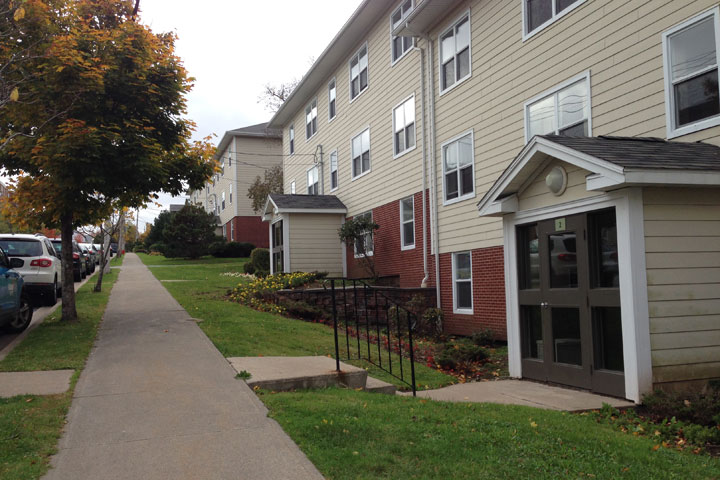Nova Scotia politicians were reminded on Thursday that the province’s housing crisis isn’t just an issue in the province’s municipalities — it needs to be addressed across the province.

Politicians from all three parties in the legislature spent the morning asking questions of experts who appeared before the standing committee on natural resources and economic development.
Witnesses were nearly unanimous: affordable housing needs to be addressed across Nova Scotia.
“I don’t think we need to worry about the supply of single-family housing or the type of housing for middle to higher-income groups as that is typically what for-profit developers are focusing on. The focus really does need to be on the affordable supply,” said Ren Thomas, an assistant professor with the Dalhousie University School of Planning.
Members of the Nova Scotia PC Party and the Nova Scotia NDP took aim at the governing Liberal Party for what they say is a lack of response to the issue of affordable housing.
Craig drew on his experience as a former municipal councilor with the Halifax Regional Municipality (HRM).
He used his time during the committee meeting to point to how the municipality has attempted to fill what he described as a gap left by the provincial government.
Craig’s assessment was a description that at least one of the experts agreed with.
“We know municipalities, if they’re able to, are providing some of that assistance already but we have in our municipal governments capacity issues as well, just in term of the number of staffs available,” said Thomas.

The vacancy rate in Halifax has dropped as low as one per cent in 2019 but jumped in 2020 to 1.9 per cent, according to Canada Mortgage and Housing Corporation’s 2020 report on rental markets.

Get breaking National news
But everyone, including politicians and experts, seemed to agree that it’s much harder to determine what the state of rental availability is in rural Nova Scotia.
Thomas explained that Nova Scotia has lower than average income and higher than average unemployment which means affordable housing is a need that will have to be addressed.
She said the province’s population of post-secondary and international students fluctuated in 2020 as a result of COVID-19, stressing that the increase in vacancies last year is likely because of that rather than an improvement in the state of housing as a whole.
Thomas stressed that it is important to learn from success stories in other provinces across Canada and to use those lessons to inform what can be done here.
READ MORE: Young people, jobs are coming back to Halifax in record numbers
Claudia Chender, NDP MLA for Dartmouth, said the subject of affordable housing is normally only spoken of as an urban issue but it applies to all areas of the province.
“From where we sit this really seems like something that is being overlooked,” she said.

Martin Laycock, acting chief operating officer for housing and municipal sustainability with the Department of Infrastructure and Housing, told the committee that he agrees affordable housing needs to be addressed across the province.
However, he disputed that the province hasn’t addressed the issue.
“Since 2015 we’ve funded affordable housing units in Port Hawkesbury, New Glasgow, Yarmouth. In 2016-2017 there were 26 in Mahone Bay and another four in Yarmouth,” said Laycock.
“We fund across the province. It isn’t just an HRM-centric program.”
Chender also raised the subject of short-term rentals, such as Airbnb or other similar applications.
Chender said the debate has often focused on the municipal regions of the province and ignored the effects on rural Nova Scotia.
“They are all identifying that also as a serious pressure, particularly when it comes to having housing for those who are working,” said Chender.

Helen Lanthier, one of three members of the South Shore Housing Action Coalition, told the committee that taking action on short-term rentals is necessary.
She said that her organization has no data but knows that anecdotally the number of short-term rentals has “skyrocketed.”
“It appears to be a real issue in impacting the availability of affordable housing,” said Lanthier.
The coalition member said some kind of regulation is necessary in order to create a balance between short-term rental accommodations and affordable housing.
Lanthier also said that having more data from the government was necessary for organizers and communities to better understand what is going on.
“The data is very limited,” she said.
Laycock confirmed that there is no homegrown Nova Scotia plan for affordable housing although he said that could be a path forward in the future.
He encouraged everyone to share their voice and provide input to the province on the Nova Scotia Affordable Housing Commission’s website.








Comments
Want to discuss? Please read our Commenting Policy first.